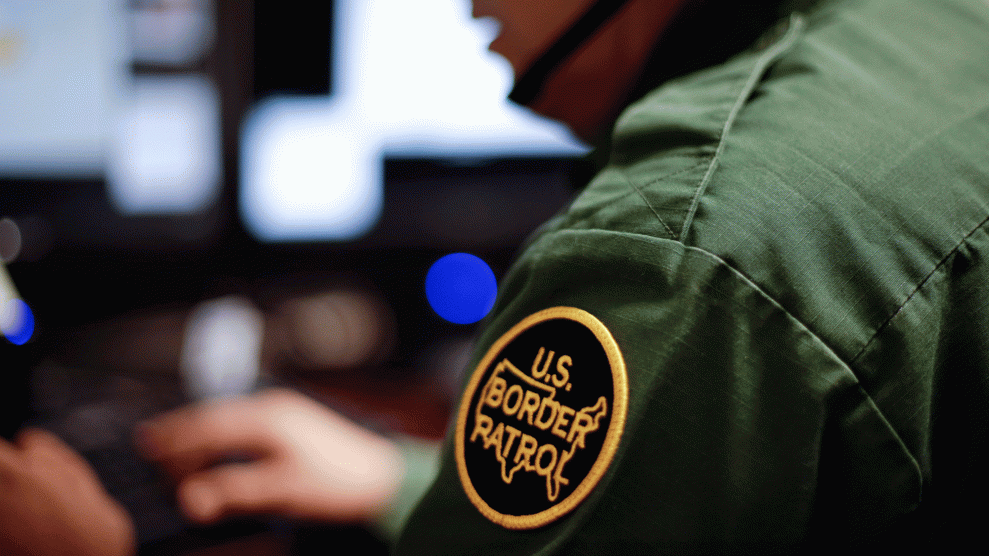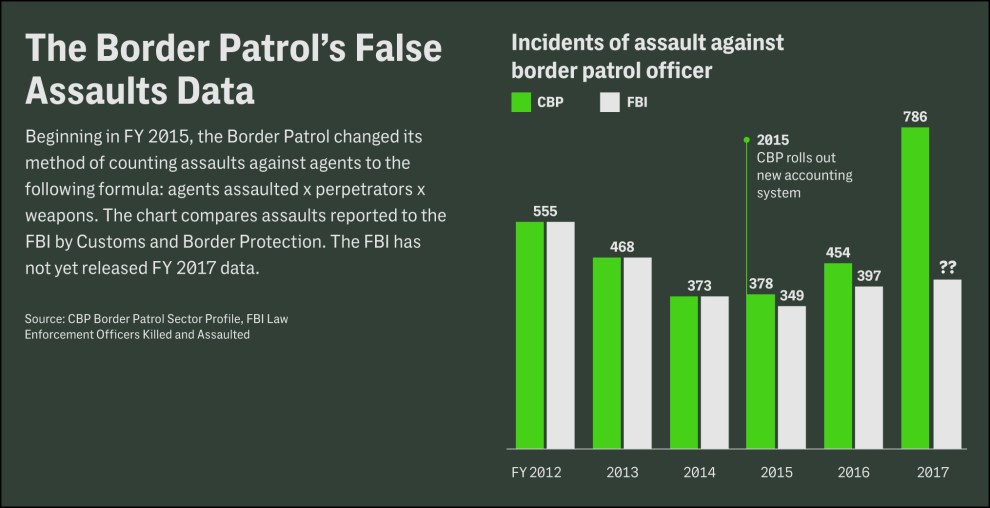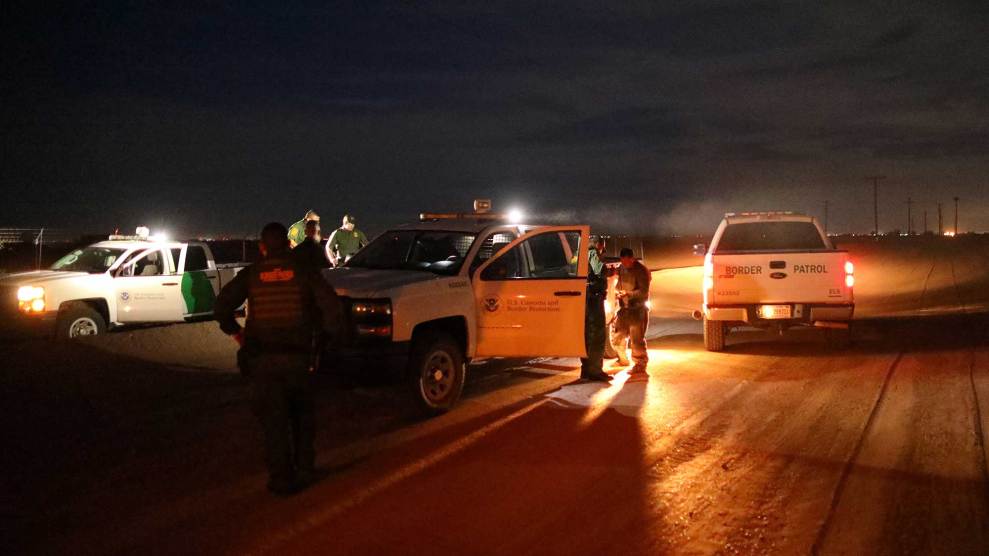
Gregory Bull/AP
In the first week of his presidency, Donald Trump requested that Congress give Customs and Border Protection (CBP) enough money to hire 5,000 new agents to patrol the US-Mexico border as part of his immigration crackdown. The move raised eyebrows among immigration activists and experts, who had been monitoring the agency’s poor discipline record and had seen cases of corruption spike in the wake of such hiring sprees.
New records obtained by the Project On Government Oversight (POGO) reveal that their concerns may not have been misplaced. Since 2016, there have been 40 cases of corruption-related charges against CBP employees, including 13 since Trump took office. Overall, 80 Border Patrol agents and 127 CBP officers have been arrested or charged with corruption-related crimes since 2004. Records show that between February 2017 and mid-March 2018, CBP employees racked up charges including embezzlement, human smuggling, theft, bribery, breaking and entering, money laundering, providing false statements, and using firearms during drug-related crimes.
In early 2016, the Department of Homeland Security declared that corrupt border agents “pose a national security threat” and found that the CBP had a “broken disciplinary process.” James Tomsheck, the former head of Internal Affairs at CBP, has repeatedly warned about corruption at the agency. He maintains that its background investigations of new employees are sorely lacking, that it sweeps corruption allegations under the rug, and that it largely resists efforts to clean house. In an interview with Mother Jones last year, Tomsheck claimed that the head of the Border Patrol agents’ union had “opposed every integrity proposal” he had made during his eight years at CBP. (The National Border Patrol Council did not respond to requests for comment.)
Some of the crimes committed by border agents on the job have been extreme. While on patrol in March 2014, Border Patrol agent Esteban Manzanares kidnapped, assaulted, and raped two Honduran girls and their mother. He committed suicide when FBI agents surrounded his home. In late 2016, the discovery of a headless body a few hundred feet from the shore of South Padre Island in Texas led investigators first to an assassin for the Gulf Cartel and eventually to a Border Patrol agent who had run guns and drugs across the border.
The 210 corruption cases documented by POGO are just those that have come to light and in which legal action was taken. In 2014, the American Immigration Council published data on 809 complaints of alleged abuse by Border Patrol agents from 2009 to 2012. In 97 percent of the cases, Border Patrol took no action on the complaints. The same year, Tomsheck told Reveal that at least a quarter of violent incidents involving Border Patrol agents were “highly suspect,” adding that “in nearly every instance, there was an effort by Border Patrol leadership to make a case to justify the shooting versus doing a genuine, appropriate review of the information and the facts at hand.” In 2016, Reveal identified 140 CBP officials who had been arrested or convicted for acts of corruption including weapons charges, drug smuggling, and human trafficking.
Experts worry that increased hiring without improved oversight will make a bad situation worse. Joshua Breisblatt, a policy analyst at the American Immigration Council, says that in previous hiring surges, “You saw a huge increase in the budget for Border Patrol and CBP, but you did not see a corresponding increase for the appropriate oversight. You did not see a corresponding increase in the DHS civil rights and civil liberties budget; you did not see an increase in the DHS Inspectors General budget. For the longest time, CBP Internal Affairs did not actually have the ability to investigate shootings done by Border Patrol agents.” Tomsheck argues that in order to fulfill Trump’s hiring request, CBP is taking an “unacceptable shortcut” by outsourcing background checks to private companies to recruit agents more quickly.
In a statement, POGO Executive Director Danielle Brian said, “Without appropriate oversight, corruption can—and will—spread like a disease, even within law enforcement. The danger of corruption is significantly increased as the president pushes to quickly hire new agents to beef up security at the border.” As Andrea Guerrero, executive director of Alliance San Diego and co-chair of the Southern Border Communities Coalition, told POGO, CBP employees “have this extraordinary power, and they have a de facto immunity because they have no meaningful oversight and accountability.”














